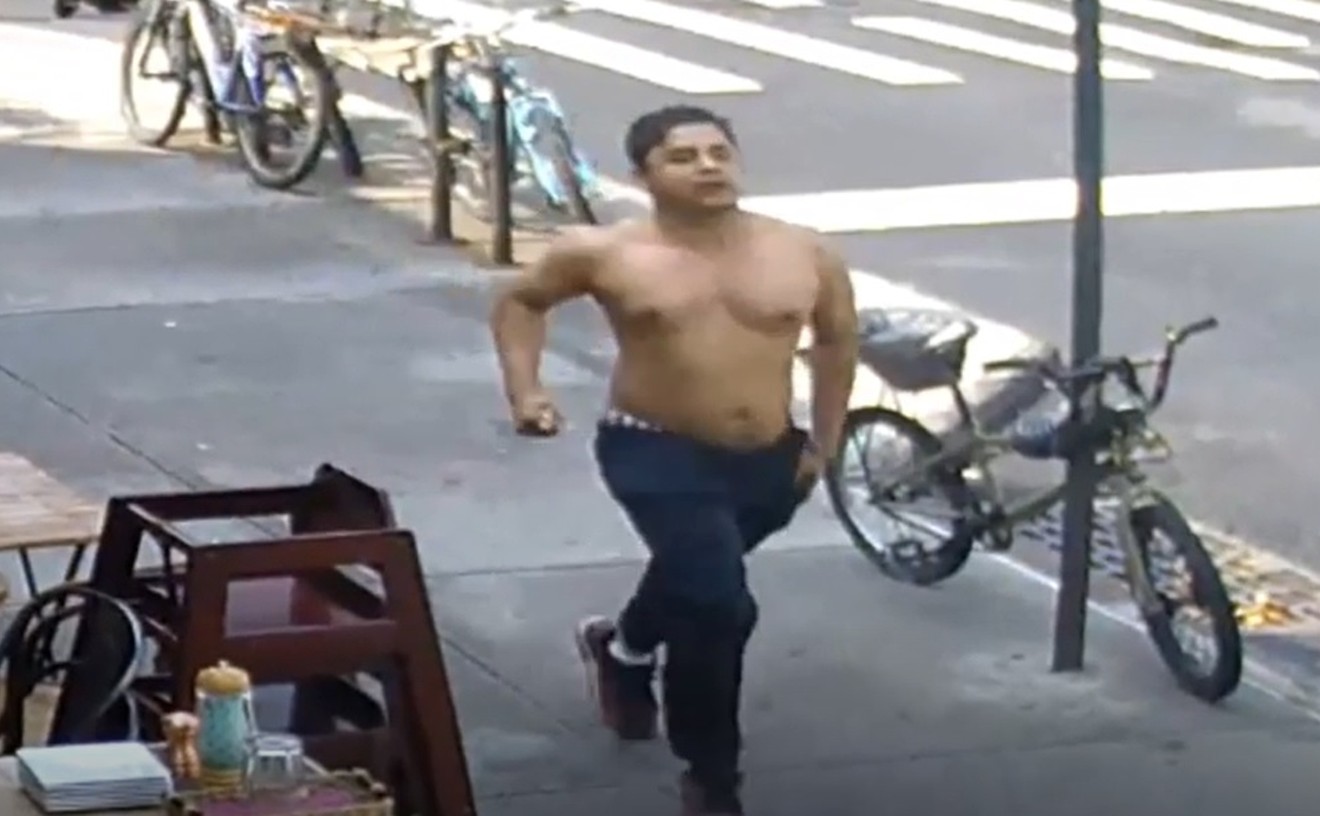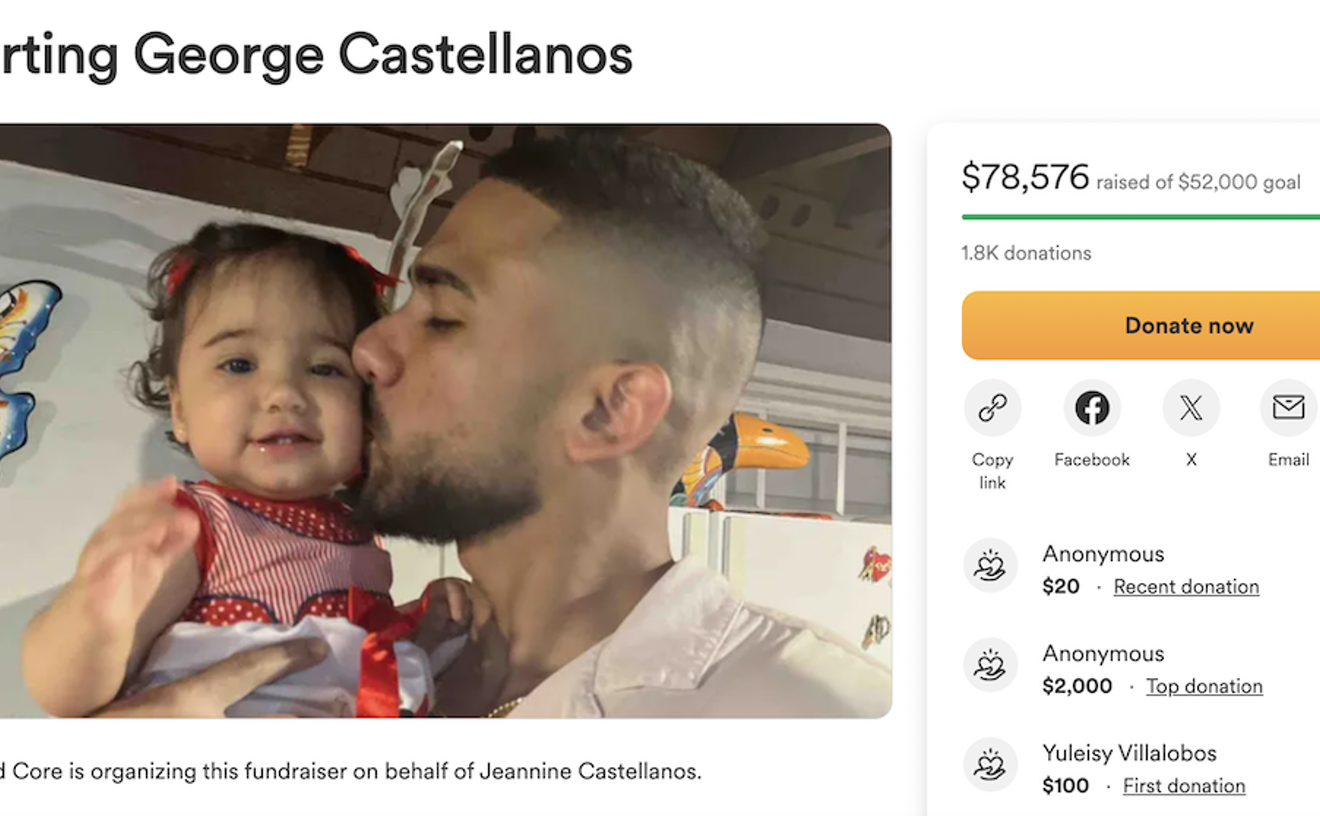The cops who handled the lengthy criminal investigation of Diaz had become indignant at the prosecution's delays in filing charges, according to several sources with knowledge of the case. The officers' frustrations escalated to the point that about two weeks ago, they confronted prosecutors from the Miami-Dade State Attorney's Office and delivered an ultimatum: File charges against Diaz or the case would be closed and all investigative material made public. The officers reportedly were so confident in the strength of their case, they were convinced such disclosure would be highly embarrassing to prosecutors.
Prompting the showdown was the belief among some of those investigators that the supervising prosecutor had a significant conflict of interest in the matter. That prosecutor, Chief Assistant State Attorney Trudy Novicki, currently is a finalist for appointment to a local judgeship and had previously sought the support of Diaz's criminal lawyer, Thomas Tew, a former member of an appeals court judicial nominating committee.
Novicki denies having had any conflict and says police officials did not approach her with their concerns. But any insinuations of a link between her judicial aspirations and the delayed prosecution of Diaz, she says, are “offensive.”
Tew, meanwhile, terms the criticism of Novicki bogus and says any delays were the result of the weak case against his client. “At the end of the day,” Tew predicts, “these detectives are going to look very silly.”
The cops disagree.
“This has been a difficult case,” concedes Frank Boni, the Miami-Dade Police Department's assistant director of investigative services, choosing his words carefully. “There has been a difference of opinion [with prosecutors], but I think ultimately all parties agree the evidence will show a criminal prosecution was appropriate.”
Over nearly two years public-corruption investigators painstakingly put together their case against Diaz, a wealthy and politically connected nurseryman who owns the vast Manuel Diaz Farms in South Miami-Dade. The charge: Diaz allegedly stole nearly one million dollars in public money by not delivering thousands of trees the county purchased in 1994 and 1995. (In February 1994 Diaz sued New Times for libel following publication of a story recounting charges by Monroe County officials that his company illegally cut and removed trees from a protected conservation area in Key Largo. A state judge dismissed Diaz's lawsuit; the Third District Court of Appeal upheld the decision.)
Throughout the investigation, sources say, prosecutors from the Miami-Dade State Attorney's Office kept asking detectives to revisit issues and reinterview witnesses, to the point that officers believed their time was being wasted. “Don't keep asking for stuff that's already done,” recounts one source. “Either make the case or don't make the case, but don't jerk everybody around.”
When the cops finally completed their investigation this past May and presented it to prosecutors Mark Smith and David Paulus, whom Novicki supervises, the officers thought they had gathered enough evidence to warrant state racketeering and conspiracy charges against Diaz, offenses that could have resulted in a maximum 30-year prison sentence. But prosecutors, after conferring with defense attorney Tew, rejected that approach in favor of what they believed was a more appropriate charge, first-degree grand theft, still a felony but one that severely limits the evidence that can be submitted at trial. Says Tew: “To the prosecution's credit, they allowed us to show why a RICO theory was flawed.”
Somewhat deflated, police officials waited for the theft charge to be lodged. And they waited. And waited.
Twice a judge extended the deadline for the statute of limitations at the request of the prosecution team, once in May and again in June. But still the State Attorney's Office did not file charges. The final extension was due to expire September 15.
In the interim police investigators learned that Novicki, a widely respected career prosecutor, is a candidate to fill a judicial vacancy in Miami-Dade's Eleventh Circuit Court. The appointment will be made by Gov. Jeb Bush. In making such decisions, Bush considers the advice of knowledgeable legal professionals, especially Republican stalwarts like Thomas Tew and his law partner Al Cardenas, who serves as chairman of the state Republican Party.
As a testament to Tew's influential role in this process, dozens of candidates for appointment to the bench routinely seek him out in hopes he'll put in a good word for them with the governor. One of those candidates was Trudy Novicki. Tew says he met with her about a year ago (before they found themselves on opposing sides in the Diaz case) to discuss her interest in a judgeship. She did not win that appointment. “I didn't know the lady,” Tew says, referring to their encounter last year. “But she had an excellent résumé.” Novicki and Tew both say they have not met again regarding a judicial appointment.
Police investigators, skeptical by nature and aware of Novicki's ambitions for the bench, became suspicious of the long delays in bringing charges against Diaz. Sources say by stalling that action until after Bush filled the current judicial vacancy, investigators speculated that Novicki could avoid upsetting powerful Republicans, Tew in particular. And if the statute of limitations expired as a result of prosecution delays, Diaz would escape criminal charges altogether. “She's a finalist for a judgeship, and Tew has access to the governor,” notes one law-enforcement source familiar with the case. “That's inappropriate.”
Says police department assistant director Frank Boni: “I was unaware of [Novicki meeting with Tew last year to seek his support]. I would think that would be a delicate situation for her. I have confidence in Trudy's judgment, and I hope she gets the judgeship.”
Novicki retorts, “I met with a lot of people in town [in search of recommendations]. I met with defense attorneys, judges, other lawyers. If I was going to have a conflict with everybody I met with, I guess I would have to stop working.”
On July 28 the Miami Herald disclosed that Diaz was under criminal investigation for allegedly not delivering the trees. Tew says he was incensed at certain details in the article that indicated to him police sources were leaking information to the press. After reading the story, an irate Tew left a voice-mail message for Assistant State Attorney Mark Smith. “I said something to the effect that if you can't control your people, then all gloves are off,” the defense attorney recalls.
But several law-enforcement sources claim the phone message also included intimidating political remarks, such as vowing to fight against State Attorney Katherine Fernandez Rundle's re-election this fall. One source who heard the message claims Tew said, “Now she'll see what political backing can do.” In addition sources say Tew declared that Trudy Novicki could forget about a judicial appointment.
Tew denies making those comments. “I never would do that,” he says. “And anybody who would do that out of vindictiveness is not fit for this profession.”
Novicki says she was never informed of the call, adding that she and Tew have not discussed her interest in a judgeship during the time she's been working on the Diaz case. Prosecutor Smith declines to comment “one way or the other.”
But mere rumors of the alleged phone message were enough to make police investigators uneasy about the fate of their case against Diaz, which prompted them to confront the prosecutors, threatening to close the case and release the files to the public.
“Trudy is a professional,” Tew offers. “Taxpayer money is being well spent on her. Any delays are because we are exchanging detailed legal factual analysis. If someone is characterizing this as the State Attorney's Office taking a long time, it's because they have a hard-on for Manny Diaz.”
One law-enforcement source remains skeptical. “How often,” he asks, “do less prominent defendants get to have their lawyers negotiate the charges and come back again and again to explain things away?”










